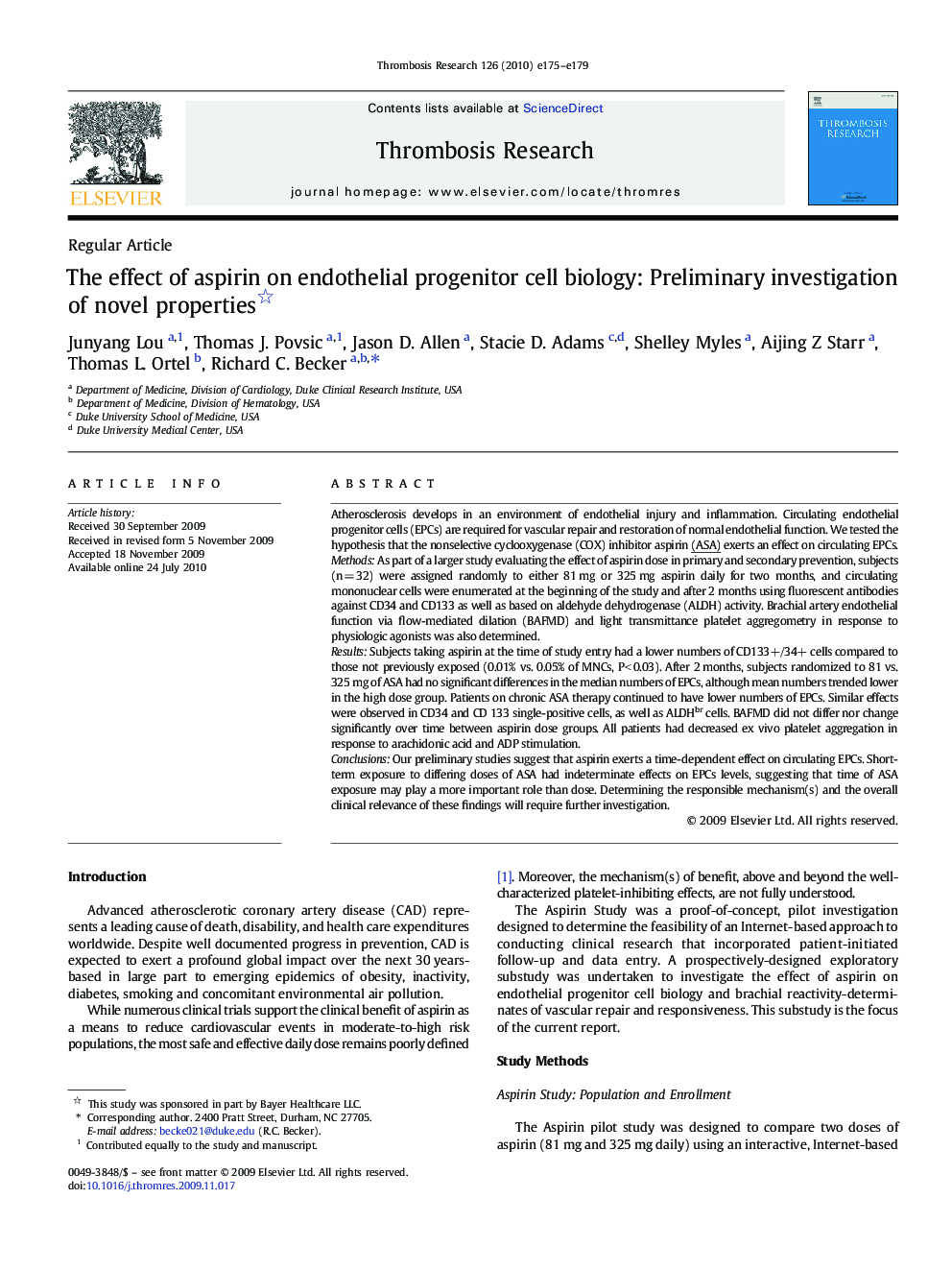| کد مقاله | کد نشریه | سال انتشار | مقاله انگلیسی | نسخه تمام متن |
|---|---|---|---|---|
| 3029313 | 1183061 | 2010 | 5 صفحه PDF | دانلود رایگان |

Atherosclerosis develops in an environment of endothelial injury and inflammation. Circulating endothelial progenitor cells (EPCs) are required for vascular repair and restoration of normal endothelial function. We tested the hypothesis that the nonselective cyclooxygenase (COX) inhibitor aspirin (ASA) exerts an effect on circulating EPCs.MethodsAs part of a larger study evaluating the effect of aspirin dose in primary and secondary prevention, subjects (n = 32) were assigned randomly to either 81 mg or 325 mg aspirin daily for two months, and circulating mononuclear cells were enumerated at the beginning of the study and after 2 months using fluorescent antibodies against CD34 and CD133 as well as based on aldehyde dehydrogenase (ALDH) activity. Brachial artery endothelial function via flow-mediated dilation (BAFMD) and light transmittance platelet aggregometry in response to physiologic agonists was also determined.ResultsSubjects taking aspirin at the time of study entry had a lower numbers of CD133+/34+ cells compared to those not previously exposed (0.01% vs. 0.05% of MNCs, P < 0.03). After 2 months, subjects randomized to 81 vs. 325 mg of ASA had no significant differences in the median numbers of EPCs, although mean numbers trended lower in the high dose group. Patients on chronic ASA therapy continued to have lower numbers of EPCs. Similar effects were observed in CD34 and CD 133 single-positive cells, as well as ALDHbr cells. BAFMD did not differ nor change significantly over time between aspirin dose groups. All patients had decreased ex vivo platelet aggregation in response to arachidonic acid and ADP stimulation.ConclusionsOur preliminary studies suggest that aspirin exerts a time-dependent effect on circulating EPCs. Short-term exposure to differing doses of ASA had indeterminate effects on EPCs levels, suggesting that time of ASA exposure may play a more important role than dose. Determining the responsible mechanism(s) and the overall clinical relevance of these findings will require further investigation.
Journal: Thrombosis Research - Volume 126, Issue 3, September 2010, Pages e175–e179